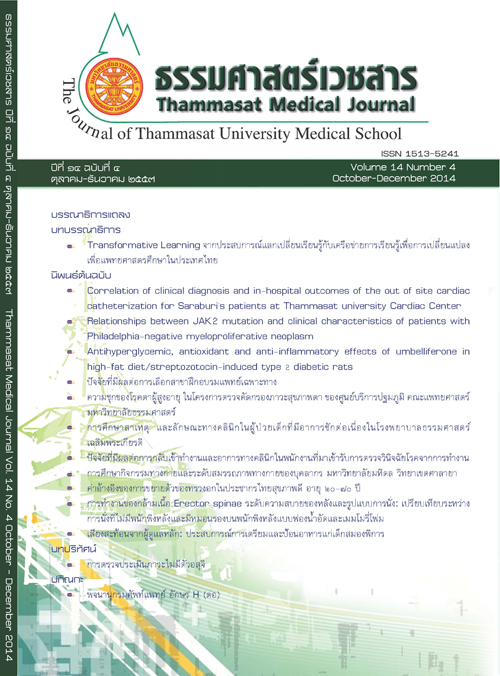Primary caregivers’ voice: Experience of food preparing and feeding children with cerebral palsy
Keywords:
Children with cerebral palsy, Food preparing and feeding, Primary caregiver, เด็กสมองพิการ, การเตรียมและการป้อนอาหาร, ผู้ดูแลหลักAbstract
Introduction: For primary caregivers, feeding children with cerebral palsy affected many aspects of life, but we knew little about what the experience was actually like. This study aimed to explore primary caregivers’ perspective on the role of food preparing and feeding children with cerebral palsy, the impact on both children and families, difficulties and supports involved.
Method: The qualitative approach was used by in depth interviews, non-participatory observations during children feeding time, and field notes. There were 9 primary caregivers participated in this study. Data were analyzed by descriptive and content analysis.
Result: Food preparing and feeding had many aspects of impact on the primary caregivers included the physical, psycho emotional, family relationship, social interaction, and economic dimensions. Main difficulty to meet the nutritional standard required was the denying of unfamiliar food of the children with cerebral palsy. To share the experiences with the other primary caregivers of children with cerebral palsy along with the suggestion of the health professionals found to be helpful for better understanding and accepting the difficulties involved. Negative attitude was also decreased.
Discussion and Conclusion: The needs and experience of the primary caregivers found in this study could be used to develop the guideline for food preparing and feeding for the children with cerebral palsy to enhance better quality of life with less difficulties and struggles.
Key words: Children with cerebral palsy, Food preparing and feeding, Primary caregiver



